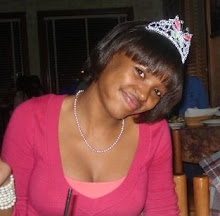Browning, at least from two of his selections, Porphyria’s Lover and My Last Duchess, seems to be interested in exploring the relationship of love, beauty, power and violence.
The Duke in “My Last Duchess,” as Dr. Glance said on his podcast, reveals more about himself than he probably intended. It was interesting how his monologue went from talking about the painting, to the beauty of the woman, to her personal life, to his involvement in her personal life. He may unintentionally allude to the controlling behavior of how he treated her and the reader must use their imagination to decide what really happened to his duchess. She smiled too much, and probably to the wrong people but because of his controlling manliness, he doesn’t argue, but rather takes action, doing what he has to do to stop her smiles. Even in her death he has a curtain around the painting so he can further control who sees her inviting smile and who doesn’t. Even by having the painting made in the first place shows that he wanted to immortalize her in some way, whether this is because of his love for her or some obsession or admiration of her beauty we can’t really say. But either way, it does show that he still needed to control the aspects of their marriage that he could.
In “Porphyria’s Lover” we see a man who may very well have loved the woman he was with, because we at least see that she loved him, calling to him when she came in from the rain and “murmuring how she loved [him],” showing her affection and her love (663). When he says, “That moment she was mine, mine fair,/ Perfectly pure and good,” he feels that he must do something to keep this feeling, of being loved by her, of being worshipped by her, as he says, and decides that the best way to keep this feeling alive forever, is to stop it right then and there (663). Stopping her from saying or doing anything else will help him believe forever that she loved him indefinitely.
The women in these two selections are made out to be the victims of a sort of blind love, being killed by men who need to control them, in the highest form of control- taking their lives. This can be related to the need of men to control behavior and such, especially someone who came from high rank and had power, like the Duke from “My Last Duchess.” I do wonder what Browning’s purpose was in writing these poems in this manner. Possibly he was using these stories as extreme examples of how men can take their power too far and was condemning this type of behavior.

Jalisa,
ReplyDeleteGood comments on Browning's controlling speakers in these two dramatic monologues. Your post might have been more successful had you focused on one of the two, though, and delved into more specific textual evidence from the poem. You don't really present any textual evidence from "My Last Duchess," replying instead on generalizations.
Great post. Like you, I noticed the strong, dominating male figure in "My Last Duchess" but missed that idea in Porphyria's lover. Your argument is well presented as well: just like "My Last Duchess,"by killing her porphyria's lover controls her." Excellent reading.
ReplyDeleteWhile I liked the posting, I also agree with Dr. Glance that you don't flesh out the argument in My Last Duchess. I understand your generalizations but specificity makes it tons better. Good Job overall though.